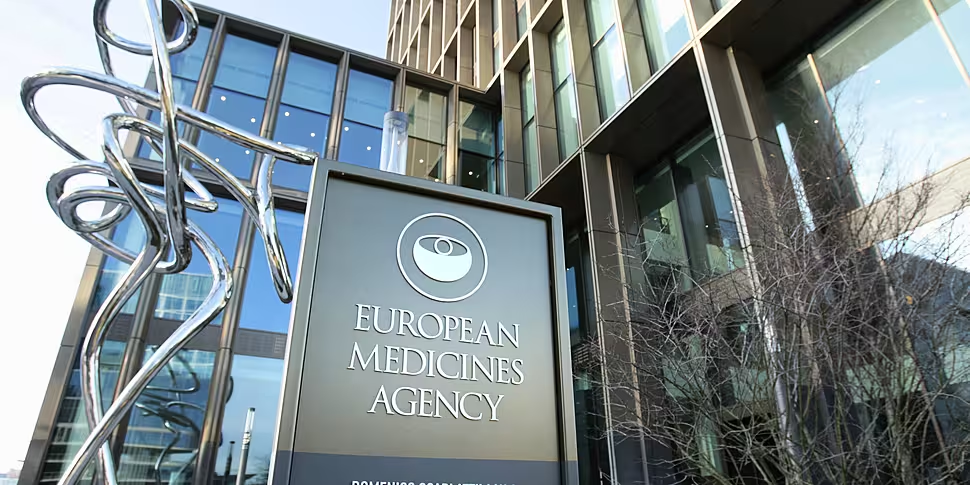The safety committee of the European Medicines Agency (EMA) has said it will "further review" the AstraZeneca COVID-19 vaccine on Tuesday, with a decision expected on Thursday.
It comes after several countries, including Ireland, temporarily suspended the rollout of the drug following information from the Norwegian Medicines Agency of reports of "serious blood clotting events" in a number of adults after the vaccine had been administered.
The National Immunisation Advisory Committee (NIAC) made the deferral recommendation following discussions with the Health Products Regulatory Authority (HPRA).
A number of other countries - including Denmark, Norway and Iceland - had already taken the decision to suspend its use over blood clotting concerns.
They have since been joined by France, Germany and Italy.
In a statement on Monday, the EMA said: "Events involving blood clots, some with unusual features such as low numbers of platelets, have occurred in a very small number of people who received the vaccine.
"Many thousands of people develop blood clots annually in the EU for different reasons. The number of thromboembolic events overall in vaccinated people seems not to be higher than that seen in the general population."
It said its investigation has been continuing over the weekend, and "rigorous analysis of all the data" related to thromboembolic events will be carried out in the coming days.
It added that its safety committee will further review the information on Tuesday, and has called "an extraordinary meeting" on Thursday to conclude on the information gathered and "any further actions that may need to be taken."
But the EMA stressed: "While its investigation is ongoing, EMA currently remains of the view that the benefits of the AstraZeneca vaccine in preventing COVID-19, with its associated risk of hospitalisation and death, outweigh the risks of side effects."
'Disappointment and setback'
The Chief Clinical Officer with the Health Service Executive (HSE), Dr Colm Henry, has said the decision to pause the rollout here was the 'correct thing to do.'
"I think given the nature of these conditions - a small number, yes in younger people, but a rare clotting conditions - there may well be no association, no cause and effect proven with the vaccine", he said on Monday.
"But I think it was a prudent and correct thing to do to pause temporarily - as other countries have done."
Asked how much this will set the vaccination programme back, he said it is not just about hitting targets.
"It means for those people who were due to have their vaccines this week in one or two groups, it means they won't be getting their vaccines this week.
"This is a disappointment to them and it's a setback to the programme.
"But the programme isn't just about numbers and targets - it's about the rollout of a safe, effective vaccine."
While Professor Luke O'Neill branded the move "very disturbing" and said it would put thousands of vulnerable people at risk.
He said: "They are not trusting the science.
"Seventeen million people have had this vaccine and there is no evidence of any kind that it is causing blood clots.
"And even worse, we know the virus itself causes blood clots - there is a high risk of that - so they are putting 30,000 people at risk now who aren’t getting vaccinated this week, so I think it is very disturbing to be honest."
Some 30,000 AstraZeneca doses will not be administered over the coming days - cutting this week's vaccination target from 80,000 to 50,000.









